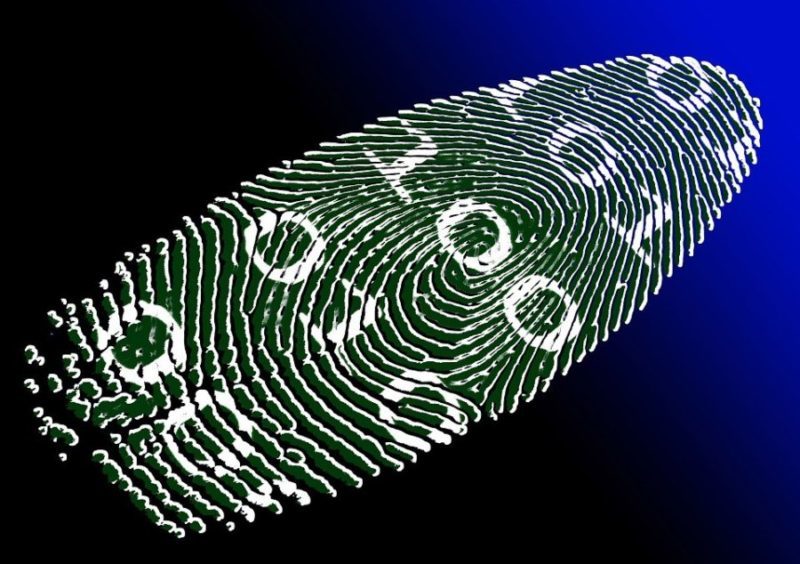Blockchain And Metaverse: Top 10 Ways Blockchain Will Boost The Use Of Metaverse
In recent years, there has been a lot of buzz around two emerging technologies: blockchain and metaverse. Blockchain is a decentralized, distributed ledger technology that enables secure, transparent, and tamper-proof transactions. The metaverse, on the other hand, is a virtual space where users can interact with each other and digital objects in a simulated environment. While these technologies may seem distinct, there is a growing relationship between them that has the potential to transform the way we interact with digital assets and virtual worlds.
Blockchain technology is the backbone of cryptocurrencies like Bitcoin and Ethereum, but it also has broader applications beyond finance. One of the most significant benefits of blockchain technology is that it enables secure and transparent transactions without the need for intermediaries. This feature is particularly relevant to the metaverse, where digital assets like virtual real estate, avatars, and in-game items can have real-world value.
The metaverse is a virtual world that is accessible through various devices, including smartphones, computers, and virtual reality headsets. In the metaverse, users can interact with each other in a shared virtual space, participate in virtual events, and engage in commerce. As the metaverse continues to grow, there is a need for a reliable and secure way to manage digital assets and transactions. This is where blockchain technology comes in.
Blockchain technology provides a secure and transparent way to manage digital assets in the metaverse. By using blockchain-based tokens, developers can create virtual currencies that can be used to purchase virtual goods and services within the metaverse. These tokens can be traded on decentralized exchanges, enabling users to buy and sell virtual assets without the need for intermediaries.
Another area where blockchain and metaverse intersect is in the area of digital identity. In the metaverse, users can create virtual avatars that represent their digital identity. By using blockchain-based identity systems, users can create unique and verifiable digital identities that can be used across multiple virtual worlds. This not only provides a secure way to manage digital identity, but it also enables users to own and control their digital identity across different platforms.
The relationship between blockchain and metaverse is a growing area of interest with significant potential. Blockchain technology provides a secure and transparent way to manage digital assets in the metaverse, and it can also be used to create unique digital identities that can be used across different platforms. As the metaverse continues to grow and evolve, it will be interesting to see how blockchain technology is used to enhance the virtual experience and enable new possibilities for digital ownership and commerce.
Top 10 ways blockchain boosts the use of metaverse.
- Digital asset ownership: One of the most significant benefits of blockchain technology is that it enables secure and transparent transactions without the need for intermediaries. This feature is particularly relevant to the metaverse, where digital assets like virtual real estate, avatars, and in-game items can have real-world value. By using blockchain-based tokens, developers can create virtual currencies that can be used to purchase virtual goods and services within the metaverse.
- Decentralized marketplaces: Blockchain technology enables the creation of decentralized marketplaces for buying and selling virtual assets within the metaverse. These marketplaces can operate without intermediaries, reducing transaction costs and enabling direct peer-to-peer transactions.
- Interoperability: Blockchain technology can enable interoperability between different virtual worlds within the metaverse. By using blockchain-based protocols, users can move their digital assets between different platforms, increasing the liquidity and value of virtual assets.
- Digital identity: The metaverse is a virtual world where users can create digital identities in the form of avatars. Blockchain-based identity systems can provide a secure and verifiable way to manage digital identity, enabling users to own and control their digital identity across different platforms.
- Copyright protection: Blockchain technology can enable copyright protection for digital assets within the metaverse. By using blockchain-based registries, developers can establish ownership and provenance of digital assets, preventing unauthorized use and ensuring fair compensation for creators.
- Transparency and security: Blockchain technology provides a transparent and secure way to manage transactions within the metaverse. By using blockchain-based ledgers, developers can ensure that transactions are secure and tamper-proof, reducing the risk of fraud and theft.
- Smart contracts: Smart contracts are self-executing contracts that can be programmed to execute automatically when certain conditions are met. By using blockchain-based smart contracts, developers can create automated and trustless transactions within the metaverse.
- Micropayments: Blockchain technology enables micropayments, which are small payments that can be made without incurring high transaction fees. By using blockchain-based tokens, developers can enable micropayments for virtual goods and services within the metaverse.
- Governance: Blockchain-based governance systems can enable decentralized decision-making within the metaverse. By using blockchain-based voting mechanisms, developers can enable users to vote on important decisions related to the metaverse’s development and evolution.
- New business models: Blockchain technology enables new business models within the metaverse, such as non-fungible tokens (NFTs), which are unique digital assets that can be bought and sold on decentralized marketplaces. By using blockchain-based business models, developers can create new revenue streams within the metaverse, enabling new possibilities for commerce and entrepreneurship.
Speaking on the future of digital economies in the metaverse at the future innovation summit in dubai 🇦🇪
Discussing how business models will and won’t work in the metaverse, how crypto will be at the core of these new economies and how to take advantage 💪 pic.twitter.com/jvoNgQYMTT
— Ben Simpson (@bensimpsonau) October 20, 2022
In conclusion
Blockchain technology has the potential to significantly enhance the use of the metaverse, enabling new possibilities for digital ownership, security, and commerce. By using blockchain-based tokens, marketplaces, identity systems, smart contracts, and governance mechanisms, developers can create a more secure, transparent, and interoperable metaverse that can benefit users and creators alike.
Stay informed with daily updates from Blockchain Magazine on Google News. Click here to follow us and mark as favorite: [Blockchain Magazine on Google News].
Get Blockchain Insights In Inbox
Stay ahead of the curve with expert analysis and market updates.
latest from tech
Disclaimer: Any post shared by a third-party agency are sponsored and Blockchain Magazine has no views on any such posts. The views and opinions expressed in this post are those of the clients and do not necessarily reflect the official policy or position of Blockchain Magazine. The information provided in this post is for informational purposes only and should not be considered as financial, investment, or professional advice. Blockchain Magazine does not endorse or promote any specific products, services, or companies mentioned in this posts. Readers are encouraged to conduct their own research and consult with a qualified professional before making any financial decisions.

 Bitcoin
Bitcoin  Ethereum
Ethereum  Tether
Tether  XRP
XRP  Solana
Solana  Dogecoin
Dogecoin  USDC
USDC  Cardano
Cardano  Lido Staked Ether
Lido Staked Ether  TRON
TRON  Avalanche
Avalanche  Chainlink
Chainlink  Wrapped stETH
Wrapped stETH  Toncoin
Toncoin  Sui
Sui  Shiba Inu
Shiba Inu  Wrapped Bitcoin
Wrapped Bitcoin  Stellar
Stellar  Polkadot
Polkadot  Hyperliquid
Hyperliquid  Hedera
Hedera  WETH
WETH  Bitcoin Cash
Bitcoin Cash  LEO Token
LEO Token  Uniswap
Uniswap  Pepe
Pepe  Litecoin
Litecoin  Wrapped eETH
Wrapped eETH  NEAR Protocol
NEAR Protocol  Ethena USDe
Ethena USDe  Aptos
Aptos  Internet Computer
Internet Computer  USDS
USDS  Aave
Aave  Cronos
Cronos  POL (ex-MATIC)
POL (ex-MATIC)  Ethereum Classic
Ethereum Classic  Mantle
Mantle  Render
Render  MANTRA
MANTRA  Bittensor
Bittensor  Monero
Monero  WhiteBIT Coin
WhiteBIT Coin  Artificial Superintelligence Alliance
Artificial Superintelligence Alliance  Ethena
Ethena  Dai
Dai  Arbitrum
Arbitrum 



